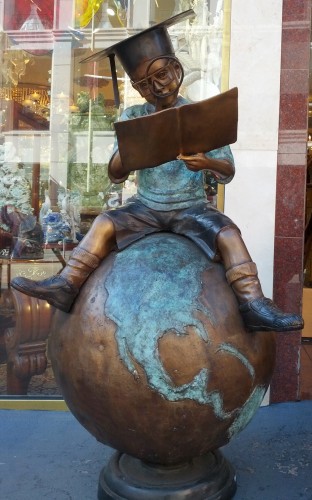For almost a year, I’ve had the honour to be a member of the Humanitarian OpenStreetMap Team Board. HOT is one of the most important Digital Humanitarian /Crisismapper communities. As a community advocate and organizer, I joined to support and be in service of these efforts. A Board member serves the strategic interest of the organization and her members. Today I ask the HOT membership to consider renewing my Board Membership so that I can continue to collaborate and help HOT grow.
For my fellow candidates: HOT is a young organization. Being a HOT Board Member often required more than 10 hours a week. If you are nominated to join the board, you should be prepared to contribute this level of time. I’m writing this to help outline what I think the HOT Board needs to do in the next term.
When I joined the Board, I began researching Board best practices and reviewed many other organization’s Board composition, bylaws and strategic plans. I also asked colleagues from other organizations what makes a successful board. I determined that I could contribute work on fundraising, communications, strategy and outreach. These are items that I felt were missing from HOT’s strategy.
My first board term involved more organizational development issues, which delayed my original goals. HOT is a Working Board. But, there are some differences between what a Board does and what items are for Operations. This continues to be a growth opportunity for HOT. A Board ideally should not be involved in the day-to-day operations operations of the organization. Some examples include: staffing decisions, receipt management for projects, and HOT activations. I think it is important to also distinguish the Board, Operations and what it means to be a valuable contributor/member of the community. Every organization needs these components, but each is often its own entity.
By definition, a Board Member key role is to support the strategic growth and ongoing success of an organization. The following types of skills would be needed among the composite board. Every individual on the Board brings different skills, so consider this a sketch:
- Networks (Fundraising, Humanitarian)
- Technical Expertise
- Legal Knowledge
- Financial Acumen
- Business and Organizational Development Strategy
- Fundraising and Communications Strategy
The HOT Board should focus on the the above noted tasks to contribute to the success of the whole project.
Some Resources:
For friends of HOT, I am collecting resources on Boards and how to help shape with examples. Please do share any resources on Board leadership or Board Best Practices. This is a journey and I am learning as fast as I can. (Thank you in advance.)
On this topic, I want to thank Aspiration Tech gifting mentorship on the Board journey.
- Chronicle of Philanthropy
- Plone: (an example of a “Working” Board)
“This is a working board. Be ready to regularly take on and complete responsibilities for board business.The board writes no code and makes no development decisions. It is much more concerned with marketing, budgets, fund-raising, community process and intellectual property considerations.”
- Open Stack (Board example)
“The Board of Directors provides strategic and financial oversight of Foundation resources and staff.”
(Photo by me: San Francisco, February 2014)
